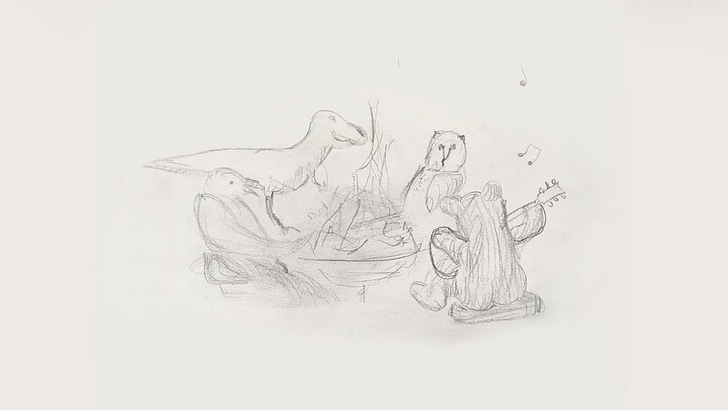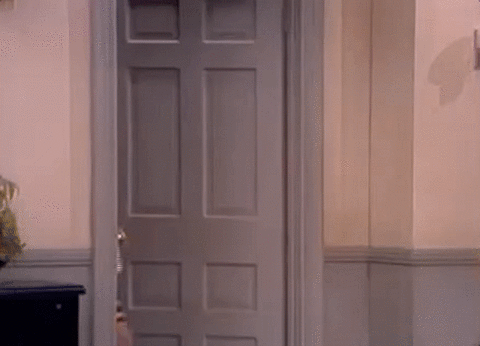Hello and welcome to my new readers! I appreciate you.
By the time you read this, the days will be getting longer again. Let’s cup that flame in our hands as it grows.
Overnight and into this morning a giant storm swept through our region, bringing rain and 90 mile per hour winds in some places. It’s 50 degrees right now when it should be freezing. And yet, I’m going to have a happy memory attached to this day: my seven year old daughter, in her sparkly purple raingear, headed joyfully out with her dad at the crack of dawn to make sure the storm drains on our block were clear.
This post is a follow up to one I published back in July, which was one of the top posts of this year. It’s about “how to cope.”
How To Cope
This past weekend I started crying on the 405 in Los Angeles. This was bad, because I was driving and wearing my glasses, two things I don’t do very often. I blame this song by the indie-folk band Big Thief, a new-to-me meditation on the necessity of change, and of sadness.
The researcher Maria Ojala has identified three strategies used to cope with climate emotions:
Problem-focused coping
Emotion-focused coping
Meaning-focused coping
This list is both-and, not either/or. All of these coping strategies have their purposes and times. In fact, I think they’re complementary to each other.
And applicable to all big, hard situations, not just climate.
Britt Wray writes in her newsletter, Gen Dread, that meaning-focused coping can be defined as
A coping strategy for harmful situations that can’t be immediately solved and demand committed action for the long haul.
Positively reappraising a tough predicament by drawing on one’s deepest personal beliefs, values, and existential goals.
Realistically acknowledging a threat, and then looking for silver linings that align with one’s beliefs, values and goals.
These are some ways that meaning-focused coping shows up in my life, and versions of sometimes-helpful ideas I’ve heard from others. I say sometimes—I think the nature of these ideas is that they sometimes seem like diamonds of wisdom, and at other times like worthless platitudes. So take what’s useful, and leave the rest. They might also be suitable to share with young people in your life.
Meaning Focused Coping Frames and Mantras
It’s not all up to me
I relinquish sole responsibility for solving this crisis. Many people around the world are working on this. I am a small part of a large, and beautiful, community working for something better. Remembering this makes me feel more connected.
I place my trust in uncertainty
No one knows exactly what the future holds. My despair is temporary and doesn’t give me special knowledge of or insight into the future. Where there is still life, there is hope.
I can’t dictate the outcome, but I know how I want to show up
We engage with challenges like the climate crisis even though it’s painful. Because the alternative is living in denial, distraction, and/or making the problem worse. Our reward for facing the pain is a more authentic, committed, purposeful life, with a wider emotional range—both sorrow and joy. And living in accordance with our values is its own reward.
The awareness of life’s fragility makes me more grateful for every moment
Amen. I can always locate some gratitude somewhere.
Thanks friends, and thanks for reading/sharing this newsletter. It means so much more than I can say.
Some links
I always love talking to Pete Dominick, who puts out a great daily podcast you should check out.
Also really enjoyed being on Heidi Pan’s climate podcast. Yes, she’s in high school.
After last week’s post, I got some more great book recommendations:
Front Country: My Side of the Mountain meets Greta Thunberg in this heartfelt, exciting YA novel
Haven Jacobs Saves The World A “thought-provoking…wonderful” middle grade novel about a young girl who channels her anxiety about the climate crisis into rallying her community to save a local river.
Wombat Underground: A Wildfire Survival Story Inspired by viral online stories during the 2019-2020 wildfires in Australia featuring wombats 'saving' other animals taking shelter in their burrows, here is a lyrical story about strangers in need of refuge.
And: a Green Stories writing competion in the UK;
and Call for abstracts for the @European Geosciences Union (EGU) hybrid conference, in the session: Climate and ocean change communication, education and geoethics Deadline 10 Jan 2024, 13:00 CET General info.












Happy Holidays Anya!
Have your read The Deluge by Stephen Markley? It's fabulous and right up your alley.